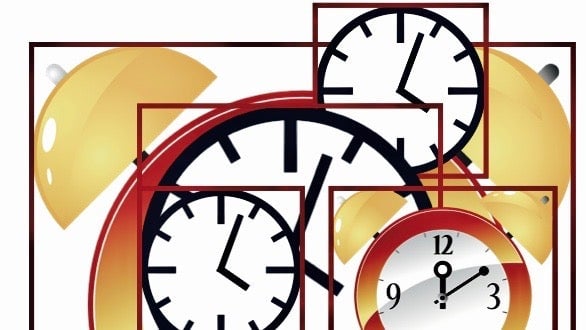Daylight saving time is incredibly disruptive—here’s how to reset
Humans are creatures of habit. We repeat behaviors, creating patterns that we rely on physically and emotionally. When these are disrupted—as sleep patterns are twice annually, internationally, with daylight saving time changes—people get “cranky, lazy, and possibly dangerous.“


Humans are creatures of habit. We repeat behaviors, creating patterns that we rely on physically and emotionally. When these are disrupted—as sleep patterns are twice annually, internationally, with daylight saving time changes—people get “cranky, lazy, and possibly dangerous.“
The precise dates for clock changes vary around the world, and not all countries make a switch—India hasn’t since 1970—and some that do want to abandon it. A parliamentary committee in Finland on Oct. 26 urged the Finnish government to push the European Union to abolish daylight saving time after 70,000 Finns signed a petition seeking the change, and experts argued that the disruptions cause short-term sleep disorders and increased work accidents.
In the US, Massachusetts and Maine are considering abandoning the practice, while Arizona and Hawaii don’t bother with it at all. Daylight saving time was widely adopted to save energy costs by increasing daylight hours, but critics argue that falling back and springing forward costs more in lost worker productivity than it saves.
Regardless, for now, those of us who live in the 78 nations that do change clocks (except Canadians in Saskatchewan and the aforementioned Americans) must deal with the coming sleep disruption. Daylight saving time ends in Europe on Oct. 29 and the US on Nov. 5. Here’s how to adjust to the time change.
Circadian rhythms and biological clocks
Circadian rhythms are daily cyclical patterns—physical, mental, and behavioral —that occur in your body in response to environmental and other conditions. Sleeping at night and being awake during the day is an example of a light-related circadian rhythm, explains the US National Institutes of Health. Animals, plants, and even microbes exhibit these cycles, which influence health, hormone release, digestion, and other bodily functions by working with various biological clocks.
Environmental signals, like light in a room, impact circadian rhythms, influencing how quickly you fall sleep, for example. These rhythms affect your biological clocks, including the master clock that coordinates all our bodily chronology.
If the rhythms are steady, habits form, and your body starts to rely on routines for its physical and emotional well-being. Disrupting these, say with a one-hour time change, messes with your rhythms and internal clock system, if only briefly, which can leave you feeling fussy.
To ease the adjustment, you can change your bedtime, scaling it back or forth gradually by ten minutes per day over a week so that change is gradual rather than sharp and shocking. Sleep experts also advise avoiding daytime naps and late night exercise and food and caffeine consumption to ensure that you fall asleep quickly and easily.
It’s especially important to avoid light at night, which includes the electronic glow of a computer or TV screen. Light travels from the retina in the eye to several parts of the brain, including the pineal gland, which is responsible for the release of melatonin, according to Rochelle Zozula of New Jersey’s Capital Health’s Center for Sleep Medicine. “Light will suppress the production of melatonin, which is directly involved in the process of sleep initiation,” she says.
If you don’t fall asleep quickly, you’ll feel less rested in the morning, which contributes to moodiness. Even getting extra sleep in the morning to make up for lost time is problematic, as it’s another disruption to routine, which further confuses your body.
Seize the day
The nonprofit National Sleep Foundation says that daylight saving time actually offers a great opportunity to reset your internal clocks and institute smart sleep routines. It suggests “setting the mood” ahead of bed by creating a calming ritual, like taking a warm bath, or playing soothing music. Also, create comfortable conditions for good rest; have a suitable mattress and pillow, and slumber in a dark, cool room.
Reserving the bedroom for slumber and no other activity can also encourage sleep to come quicker. If all you ever do in your bedroom is sleep, your body will become accustomed to that routine and your mind won’t long to watch a movie when you’re in bed trying to rest.
Perhaps most importantly, the foundation advises against worrying ahead of bed, suggesting you “save your worries for the daytime.” If you can’t do that and are plagued with concerns anyway, go to another room, turn on the lights, and jot them down in a journal for daytime contemplation, then get back to bed in the chamber reserved only for rest. Come morning, if you’ve slept well, those worries may not seem like such a big deal.
Correction: An earlier version of this article stated that daylight saving ends on Oct. 29 in Australia, along with Europe. Daylight saving began, rather than ended, on Oct. 1 in Australia.